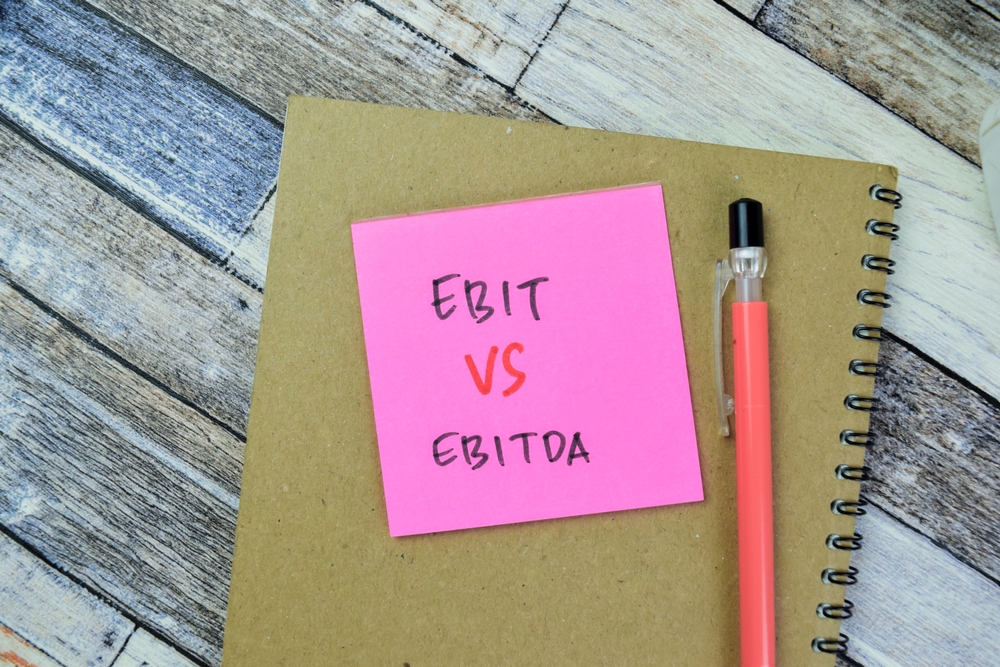If you’re buying a business in Perth, understanding EBITDA and EBIT is essential to both you and your Perth business accountant.
Both EBIT and EBITA give insight into a company’s profitability and financial health. This analysis is needed when making decisions about growth, financing, or even a potential sale.
This blog explores the difference between EBITDA and EBIT. They are both useful.
What is EBITDA?
EBITDA, stands for Earnings Before Interest, Taxes, Depreciation, and Amortisation.
Here’s a quick breakdown:
- Earnings: Net profits of the Perth SME.
- Interest: Payments related to loans or other financial obligations.
- Taxes: All applicable income taxes the business is required to pay.
- Depreciation: The reduction in value of physical assets over time.
- Amortisation: Similar to depreciation but applies to intangible assets (goodwill etc).
The main advantage of EBITDA is that it gives a view of a company’s operational performance by excluding variable costs like interest and taxes, which can be influenced by financial strategies or geography and don’t directly reflect core business activities.
Investors, banks, and their Perth business accountants often use EBITDA to value companies and compare efficiency across companies in the same industry.
When removing the cost of taxes from EBITDA, it is important to only adjust for income tax. Other taxes like payroll tax or fringe benefits tax are not adjusted when considering your EBITDA.
What is EBIT?
EBIT, includes depreciation and amortisation costs. It is a more conservative measure than EBITDA.
EBIT focuses on the operational earnings of the Perth SME without factoring in the cost of capital. This provides a straightforward look at how well the business performs from its core operations.
Sometimes EBIT is referred to as the Return on Capital Employed.
Key Differences Between EBIT and EBITDA
While both EBIT and EBITDA measure a company’s profitability, they aren’t the same.
EBIT includes depreciation and amortisation, so it is more conservative. On the other hand, EBITDA excludes these expenses, often presenting a more favourable picture of profitability.
Which metric to use depends on what you’re trying to assess:
- For long-term investments: EBITDA may be more relevant as it ignores depreciation and amortisation, which can significantly impact long-term financials.
- For operational efficiency: EBIT might be a better measure as it focuses solely on the company’s core operational performance.
EBITDA vs EBIT
Let’s consider a hypothetical food production business (say ice cream) with an EBITDA of $500,000.
EBITDA Example
In this scenario, the ice cream manufacturer’s net profit after tax is $3,000,000. It also pays $400,000 in interest, has a tax liability of $2,000,000, and incurs $250,000 in depreciation and $40,000 in amortisation costs.
Formula: EBITDA = Net Income + Interest + Taxes + Depreciation + Amortisation
To calculate EBITDA, you add these figures:
$3,000,000 (Net Income) + $400,000 (Interest) + $2,000,000 (Taxes) + $250,000 (Depreciation) + $40,000 (Amortisation) = $5,690,000.
EBIT Example
EBIT focuses more narrowly on operational profitability, excluding depreciation and amortisation, but still accounts for interest and taxes.
Formula: EBIT = Net Income + Interest + Taxes
To calculate EBIT for this HVAC business, you take the net income of $300,000 and add the interest and taxes:
$3,000,000 (Net Income) + $400,000 (Interest) + $2,000,000 (Taxes) = $5,400,000.
Both metrics are good and give you, and your Perth business accountant, an insight into a company’s financial performance.
When should I use EBITDA?
Many Perth business accountants use EBITDA to compare operational efficiency between companies in industries where depreciation and amortisation are significant expenses.
In sectors like manufacturing, where significant capital investments in service vehicles and specialised equipment lead to substantial depreciation costs, EBITDA allows you to focus on core business performance by considering only revenue, cost of goods sold (COGS), and overhead, without being affected by depreciation and amortisation.
When should I use EBIT?
EBIT, however, is a strong indicator of a business’s operational profitability.
It’s particularly valued in industries where operational efficiency is a key measure of success, such as service sectors, where depreciation has less impact on overall financial performance. So, a Perth business accountant may use EBIT when assessing the financial viability of a legal practice.
Limitations of EBITDA
Many Perth business accountants will discuss EBITDA with depreciation considered as a notional expense. However, depreciation as a cost is real.
If you run a trucking business, and after every 10 years, you need to buy a new truck for $500,000, the cost of the new truck is real. And so is the cash that leaves the company to buy the truck.
Limitations of EBIT
For many businesses, the cost of interest can take different forms. A leased asset can easily be converted into a purchased asset with interest costs. So, simply adding back interest can become misleading when it can be an operational cost.
Limitations of EBIT and EBITDA
With net profits after tax, a business will repay debt and pay dividends to the family. So, while ignoring tax for analytic purposes is excellent, it is misleading when considering the cashflows of a business purchased.
A family in business should always do a three-way cash flow when considering future business purchases.
Financial Decision-Making
Investors, Perth business accountants, and analysts use EBITDA and EBIT to make financial judgments about a business. EBITDA is often favoured for mergers and acquisitions as it offers an easier snapshot of a company’s operational performance. The depreciation cost is also reflected in the purchase price.
EBIT is widely used by accountants, banks and investors who are more interested in a business’s day-to-day operational profitability.
In ice cream manufacturing, for instance, an acquisition entrepreneur may look at EBITDA when considering an acquisition, focusing on operational cash flows.
A small business law firm might focus more on EBIT and be interested in how efficiently the business operates.
It’s crucial to note that some investors might prefer one metric over another, depending on the situation.
A long-term investor might value EBIT more because it includes depreciation, a real expense that will eventually need to be paid for, such as replacing ageing fridges or equipment.
Common questions asked to a Perth business accountant
Is EBIT better than EBITDA?
Neither is necessarily better—it depends on what you’re analysing. EBITDA is great for understanding a company’s operational efficiency without the influence of financing or accounting factors. EBIT provides a more conservative measure and is often used for long-term investment decisions.
Why is EBIT considered the best measure?
Calling EBIT the “best” measure of profit is not always correct. However, EBIT is often favoured because it focuses on a company’s core operational efficiency including capital expenditure. EBIT gives a realistic picture of business performance, excluding the effects of financing and taxes.
Is it good to have a high EBIT?
Generally, yes. A high EBIT suggests solid operational profitability. However, context matters—a high EBIT in one year and a steep decline in the next could signal issues. It’s also good to compare EBIT to industry averages.
Can EBITDA be negative?
EBITDA can be negative. A negative EBITDA indicates a business is losing money, whether through high costs, low revenue, or both. It’s a red flag for investors and suggests a closer look at the business is needed.
EBIT can also be negative.
Conclusion
No key financial accounting metric should be examined in isolation, so both EBIT and EBITDA offer one way to review a business. The clarity of financial data and the review of an SME business for purchase are critical to success. Given the size and risk of a purchase to a family in business, it is important to deal with an engaged accountant who understands the process.
This is where Westcourt stands out. Our single focus on families in business, coupled with our deep international network, award-winning expertise, and independence of approach, makes us a clear choice for helping you purchase, review and grow your business – so why not call us?






